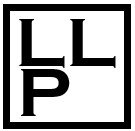What the Heck is Happening with Library Boards?
One of the things we love about the Library Land Project is the opportunity to meet interesting people who care deeply about public libraries. Library workers and leaders, patrons, Friends, foundation members, state association people, boards of trustees, we love ‘em all. In our experience, these people come to their work with goodwill and constructive intentions. It’s really heartening.
Unfortunately, everything isn’t always sunshine and rainbows in library land. We spend a lot of time reading about, seeing, and hearing about challenges faced by public libraries. We’ve learned about book bans, been told about so-called First Amendment auditors, and - recently - have been hearing more and more about some troubling developments regarding boards of trustees.
Around the country, efforts are underway to reshape public libraries. Rather than serving the full needs of rich and complex communities, some libraries are pulling back - many in fear - to reflect the narrow views of small but vocal segments of their communities. It’s another example of the retrograde movement to “return” America to some mythologized past.
Built on grievance, we would argue this movement is a sick betrayal of American values - and now, it is attempting to set library policy!
Where is this happening, and what does it look like? Why here are just a few examples:
In Citrus County, Florida, 45 people pulled papers to run for five open positions on the nine-person board. The library director attributes the interest to Pride Month displays at two branches in 2021. According to the Citrus County Chronicle, “Many residents blasted the displays, saying libraries should not be in the business of promoting what they believe is an immoral sexual lifestyle. Supporters view the displays as educational and are against censorship.”
In Llano, Texas, Bonnie Wallace, a 54-year-old local church volunteer, created “an Excel spreadsheet of about 60 books she found objectionable, including those about transgender teens, sex education and race,” according to the Washington Post. That list prompted the county’s chief librarian to ask that the titles be removed from the shelves. Suzette Baker, head of one of the library’s three branches, countered that doing so - even to relocate them behind the circulation desk - amounted to censorship.
Even well-loved and innocuous books - Maurice Sendak’s “In the Night Kitchen” among them - have been targeted. Now, Wallace has been named vice-chair of the newly constituted library board, one that has been filled with like-minded people and whose meetings are currently closed to the public.
In Enid, Oklahoma, the library board voted to ban library programs and displays that focus on sexual content. That decision led, according to the Enid News, to the cancellation of a planned library program for sexual assault awareness and a romance novel book club for adults.
Susie Hinkle, a member of the Public Library of Enid and Garfield County’s board of directors, was quoted as saying that while “there might be some controversy, I think if we get creative with the library staff and board together, we can definitely come up with some things … that would make everything a little more neutral. I think we can do that so people going in there, all people, always think this is a super neutral place.”
In Lafayette, Louisiana, the Lafayette Parish Library Board of Control - following a year in which the library director was pressured to resign, and a grant for a reading group about the history of black voting was declined because some members wanted a representative of “the other side” - elected Robert Judge as board president.
In the past, according to the Acadian Advocate, Judge attempted to change the mission of the library system to “eliminate cultural enrichment and entertainment activities.” Those efforts failed in the past, but now, as president, he is planning to appoint a committee - one that specifically bans librarians - to reconsider the proposal.
Libraries aren’t - and can never be - neutral. Point two of the American Library Association Bill of Rights says, “Libraries should provide materials and information presenting all points of view on current and historical issues. Materials should not be proscribed or removed because of partisan or doctrinal disapproval.” Huh? “All points of view?”
First, it’s physically impossible, but it’s also completely wrongheaded.
Do we really need to provide racist and anti-racist materials in equal measure to maintain neutrality? Many libraries do great work in providing resources and support for victims of domestic violence; do they also need to encourage it as well? Does factual and counterfactual information sit side-by-side? Are they presented as equal? Does a “flatlas” need to sit next to a globe? Obviously, the answer to all of these questions is no. And yet, here we are.
Removing public oversight, elevating the unqualified, and searching for grievances are symptoms of a worsening problem. Stunning. A vocal minority is dragging us backward - maybe all the way back to the Bronze Age!
So, what can be done? Get involved! Positions on these boards aren’t typically visible, and their work isn’t sexy, yet it is essential. The only way people of goodwill can counter bad faith efforts is to participate. Whether as a member of the public - or as an elected or appointed board member - voices of hope, of inclusion, of greater access, more diversity need to be heard, now more than ever.
Adam and I are fortunate to engage with libraries in many different ways. Everyone, please, find a way that feels right for you and get to work! Support libraries and library policies that protect intellectual freedom!
